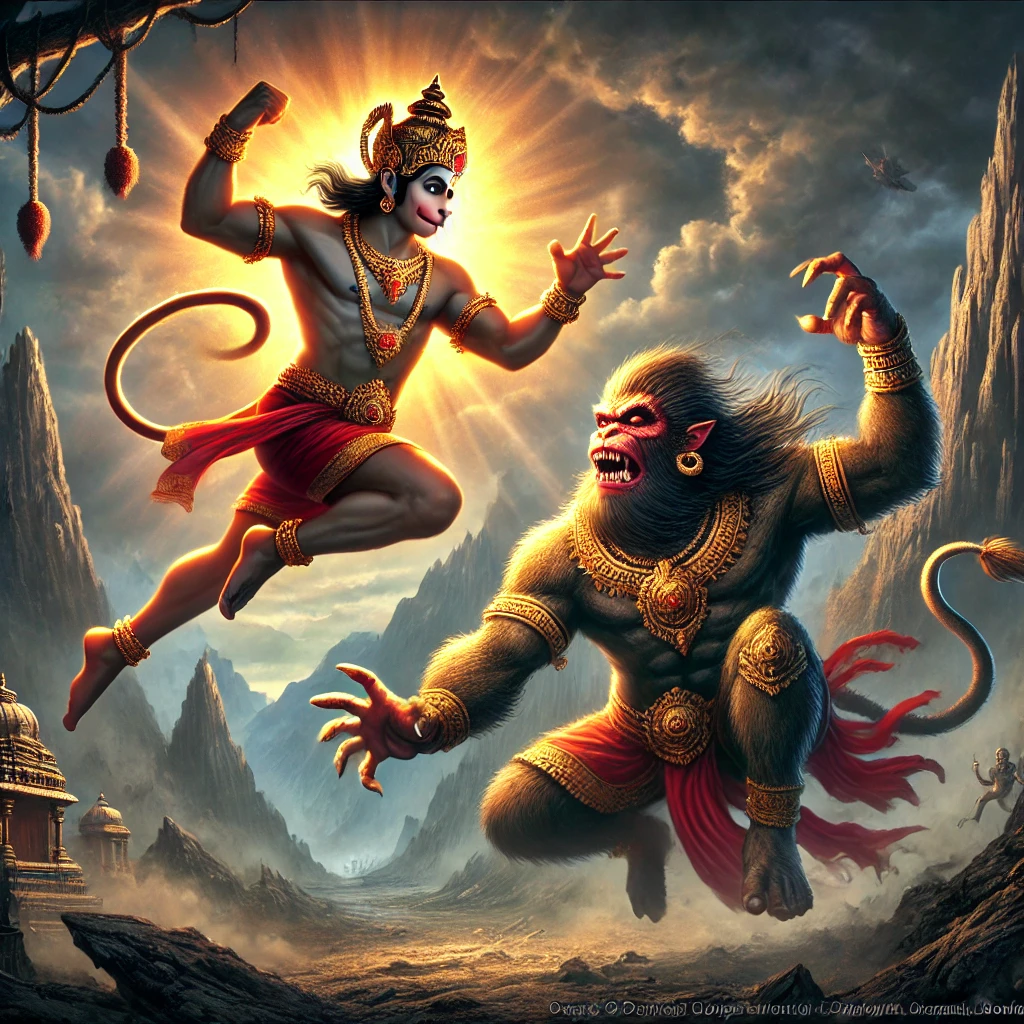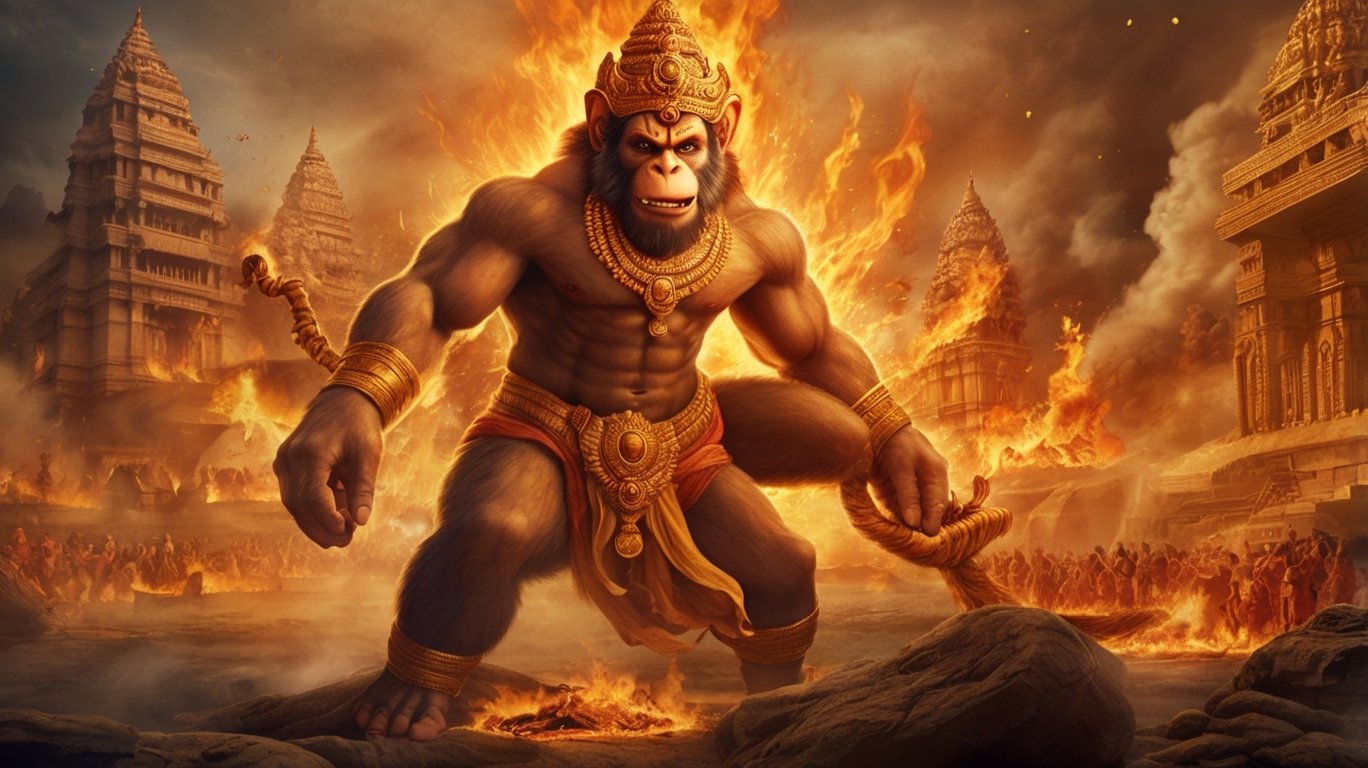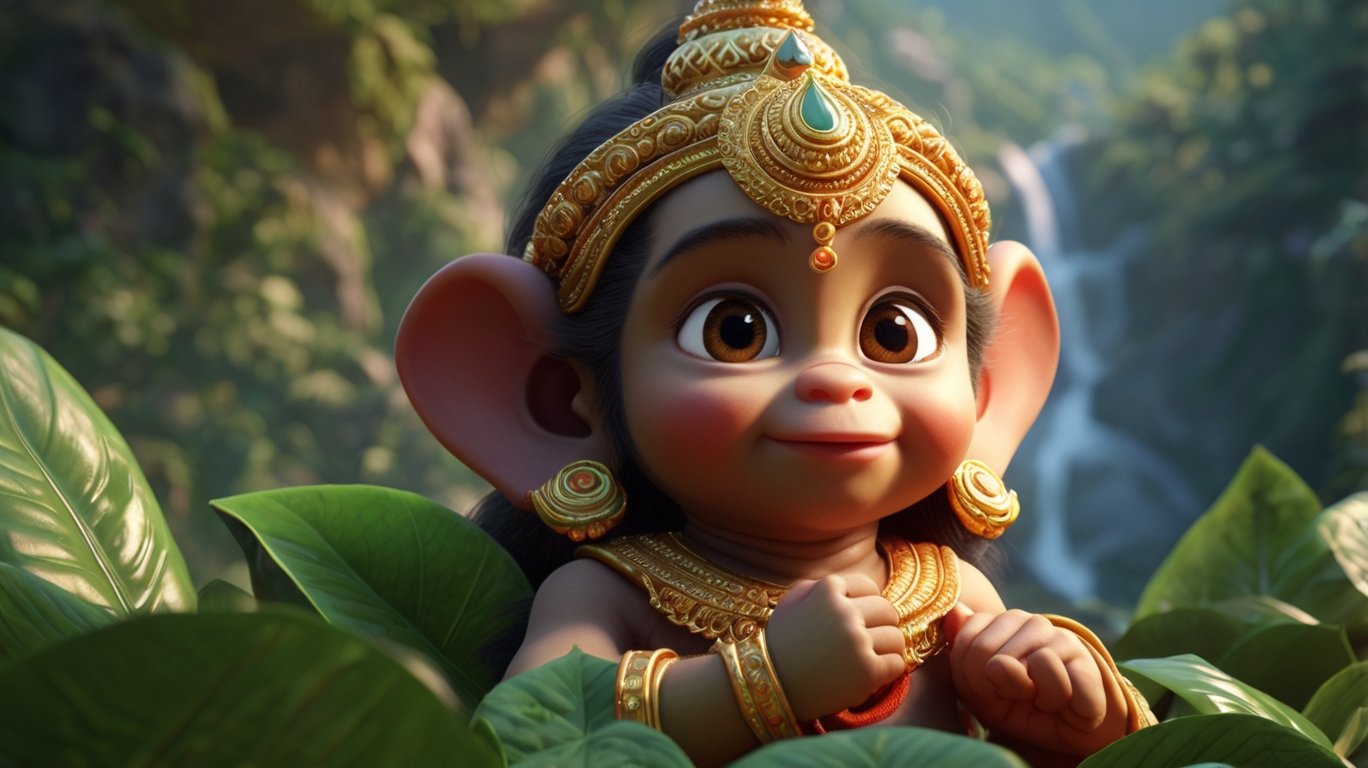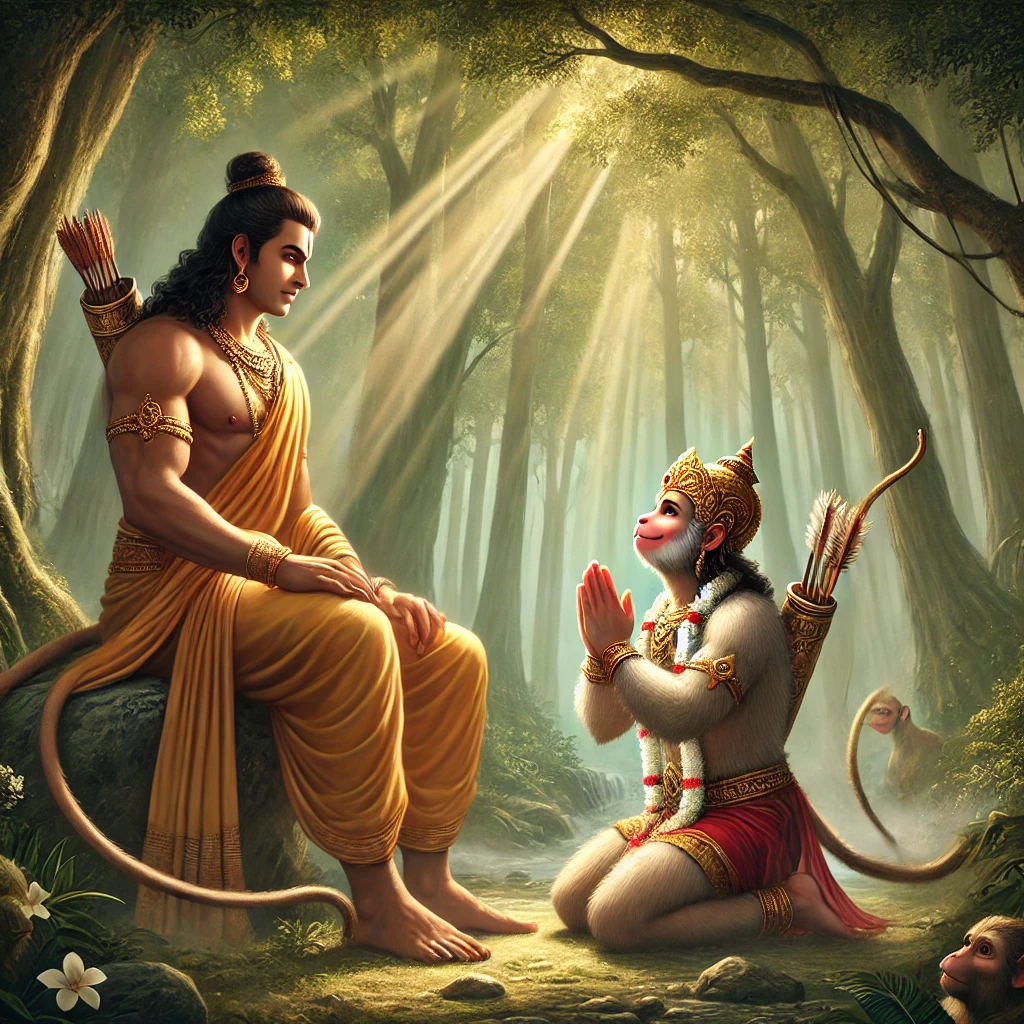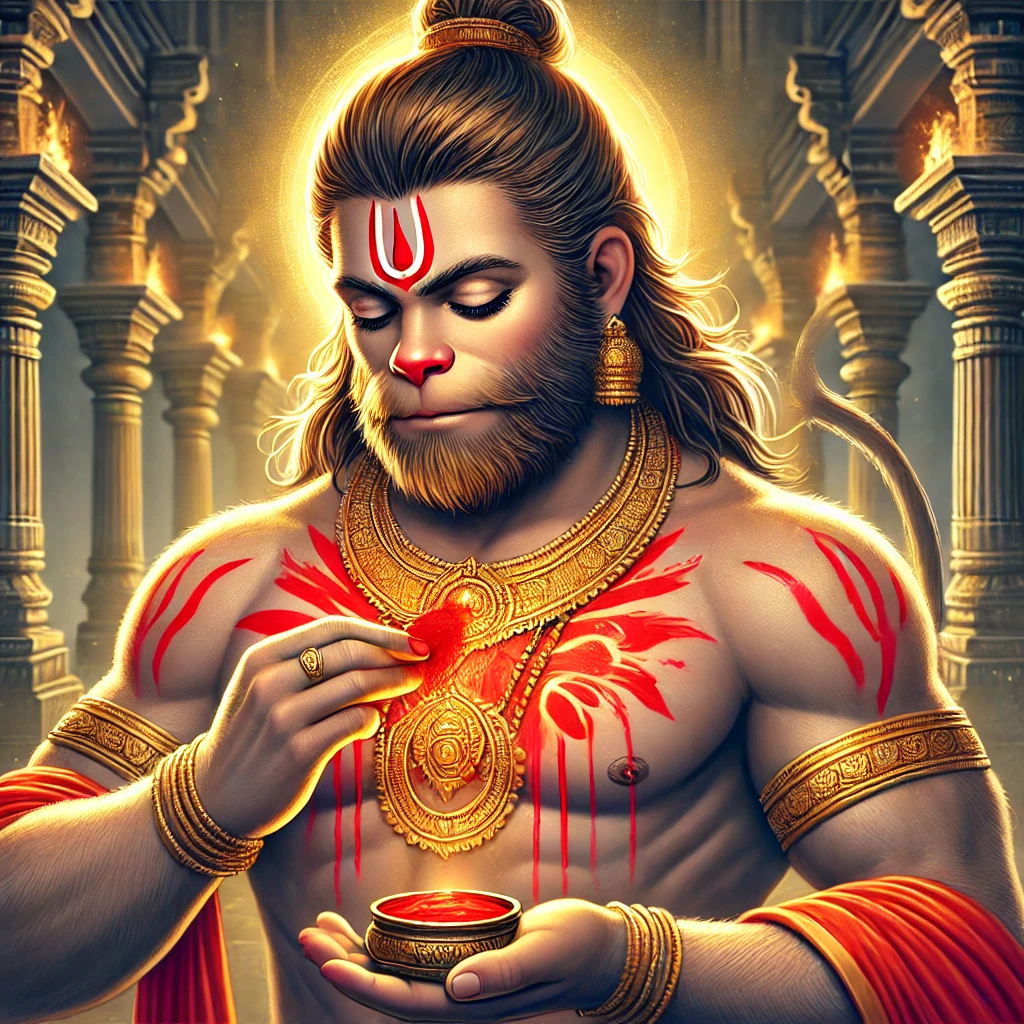Welcome to Bedesii.com!!
At Bedesii.com, we are dedicated to bringing you insightful and enriching content about Hindu mythology, spirituality, and divine wisdom. Join us on this journey as we explore the fascinating family of Lord Hanuman, uncovering their significance and impact on his legendary life.
Table of Contents
Introduction
Lord Hanuman, one of the most revered deities in Hindu mythology, is widely known for his unparalleled devotion to Lord Rama, immense strength, and selfless service. While Hanuman’s bravery, celibacy, and devotion are often discussed, little is explored about his divine family. This blog delves into the family members of Lord Hanuman—his parents, siblings, wife, son, and their significance in his life and Hindu mythology.
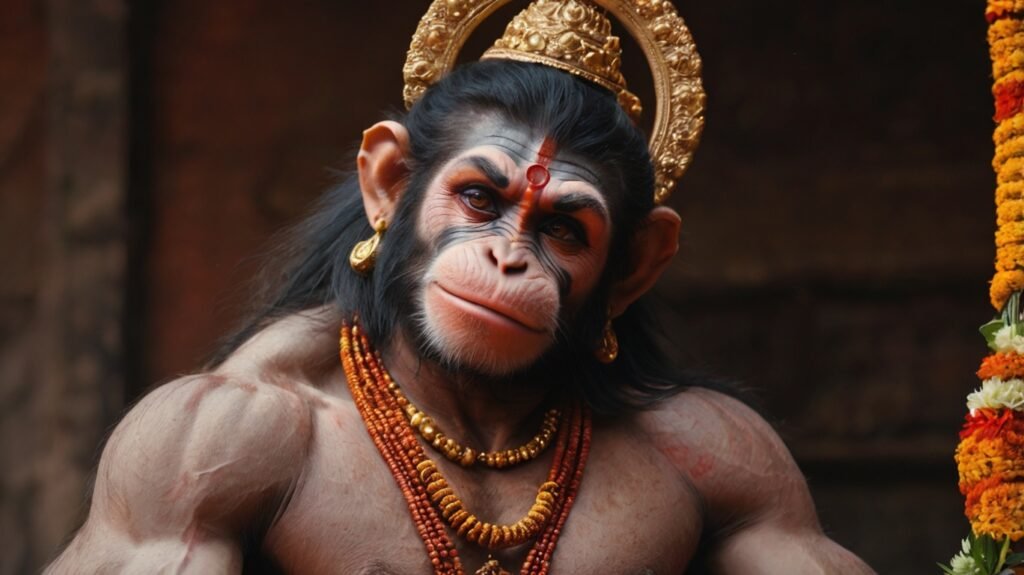
Father: Kesari – The Mighty Vanara King
Kesari, Hanuman’s father, was a brave and powerful Vanara (monkey) chieftain who ruled over the Anjanadri region (now believed to be part of Karnataka or Maharashtra). He was a noble and just king, known for his immense strength and courage.
Significance of Kesari in Hanuman’s Life
- Kesari’s lineage provided Hanuman with royal Vanara ancestry, giving him leadership qualities.
- His martial skills and strength were passed down to Hanuman, making him a formidable warrior.
- Despite being his earthly father, Kesari is not frequently mentioned in Hanuman’s tales, as Hanuman’s true spiritual essence is divine.
Mother: Anjana – The Celestial Apsara Turned Vanara
Hanuman’s mother, Anjana, was originally a celestial apsara named Punjikasthala. Due to a curse, she was born on Earth as a Vanara. She performed intense penance to Lord Shiva, seeking a son who would be extraordinary in strength and devotion. Lord Shiva blessed her, and through divine intervention, she gave birth to Hanuman.
Role of Anjana in Hanuman’s Life
- Her penance and devotion ensured Hanuman’s divine nature.
- Anjana’s prayers made Hanuman an incarnation of Lord Shiva, giving him divine strength and wisdom.
- She played a crucial role in shaping Hanuman’s disciplined and spiritual personality.
Spiritual Father: Vayu – The Wind God
Though Kesari was Hanuman’s earthly father, he is also regarded as the spiritual son of Vayu (the Wind God). According to legend, when Anjana was granted a boon by Lord Shiva, the Wind God carried divine energy into her womb, leading to Hanuman’s birth. Thus, he is also called “Vayuputra” (Son of Vayu).
The Influence of Vayu on Hanuman
- Hanuman inherited speed, agility, and the ability to fly from Vayu.
- His power of transformation and resilience is linked to his connection with the Wind God.
- Vayu’s grace made Hanuman immune to fatigue and external harm, allowing him to serve Lord Rama tirelessly.
Hanuman’s Siblings – His Five Brothers
While Hanuman is mostly known as a divine celibate, some lesser-known texts mention that he had five brothers, each embodying unique qualities.
1. श्रुतिमान (Shrutiman) – The Knowledgeable One
Shrutiman was renowned for his deep knowledge of the Vedas. He was an expert in astrology, literature, and astronomy. His understanding of the mystical verses of the scriptures allowed him to solve even the most complex problems with wisdom and clarity. His presence radiated the light of knowledge wherever he went.
2. गतिमान (Gatiman) – The Swift One
Gatiman was famous for his incredible speed and agility. His velocity was unmatched, allowing him to traverse mountains, oceans, and vast landscapes effortlessly. His swiftness symbolized his courage and determination, making him a formidable warrior.
3. मतिमान (Matiman) – The Wise Strategist
Matiman was known for his intelligence and deep thinking. A great diplomat, he possessed an unparalleled ability to craft strategies and policies. His wisdom and clarity of thought enabled him to counter the deceptions of demons, ensuring the victory of righteousness.
4. केतुमान (Ketuman) – The Mighty Warrior
Ketuman was a valiant fighter, known for his proficiency in weaponry and combat skills. He had fought numerous battles against demons to uphold dharma. His knowledge of diverse weaponry and fearless demeanor made him an indispensable warrior in times of war.
5. धृतिमान (Dhritiman) – The Patient and Resilient One
The youngest of Hanuman’s brothers, Dhritiman, was known for his immense patience and strong willpower. He was deeply cherished by Hanuman for his calm and gentle nature. However, when the need arose, he demonstrated extraordinary bravery and fortitude, proving his mettle in adversity.
Hanuman’s Wife – Suvarchala
While Hanuman is often considered a celibate (Brahmachari), some ancient texts, particularly the Parashara Samhita and certain Tantric scriptures, mention that he was married to Suvarchala. Suvarchala was the daughter of Surya (the Sun God) and was highly learned in Vedic scriptures.
Significance of Suvarchala in Hanuman’s Life
- Suvarchala was a divine consort given to Hanuman by Surya, his guru, as part of his education in the Vedas and martial arts.
- Their marriage was said to be purely spiritual, allowing Hanuman to maintain his celibacy while fulfilling a divine role.
- Suvarchala represented wisdom and knowledge, complementing Hanuman’s devotion and strength.
Hanuman’s Son – Makardhwaja
According to some ancient texts, Lord Hanuman had a son named Makardhwaja. His birth is described in a unique and mystical manner.
The Legend of Makardhwaja
- It is believed that when Hanuman leaped across the ocean to reach Lanka, a drop of his sweat fell into the waters. A fish (Makara) swallowed this divine essence, and thus, Makardhwaja was born.
- He was later found and raised by Ahiravana, a demon king of Patal Lok (the netherworld).
- Makardhwaja became a mighty warrior and was appointed as the guardian of Patal Lok by Ahiravana.
Role of Makardhwaja in Hanuman’s Life
- When Hanuman descended into Patal Lok to rescue Lord Rama and Lakshmana from Ahiravana, he encountered Makardhwaja as the gatekeeper.
- A battle ensued between father and son, in which Hanuman defeated Makardhwaja.
- Upon realizing his lineage, Makardhwaja surrendered to Hanuman and later ruled Patal Lok with righteousness and valor.
Hanuman’s Guru – Surya Dev
Lord Hanuman’s guru was none other than Surya Dev (the Sun God). Hanuman, in his quest for knowledge, approached Surya Dev and requested him to be his teacher. Initially, Surya Dev hesitated, as he was constantly moving across the sky and teaching while traveling seemed impossible. However, Hanuman, with his extraordinary capabilities, positioned himself in front of Surya and moved backward at the same speed as the Sun’s chariot, absorbing every lesson imparted.
Teachings of Surya Dev to Hanuman:
- Mastery over the Vedas and Scriptures
- Knowledge of Sanskrit and Divine Wisdom
- Expertise in warfare, martial arts, and weaponry
- Guidance in diplomacy and leadership skills
After completing his education, Hanuman humbly asked what Guru Dakshina (teacher’s fee) he could offer. Surya Dev, impressed by Hanuman’s devotion and humility, initially refused any payment. However, upon Hanuman’s insistence, Surya Dev asked him to assist his son, Sugriva, in times of need. This promise led Hanuman to become Sugriva’s trusted minister and later, the key figure in Lord Rama’s mission to defeat Ravana.


